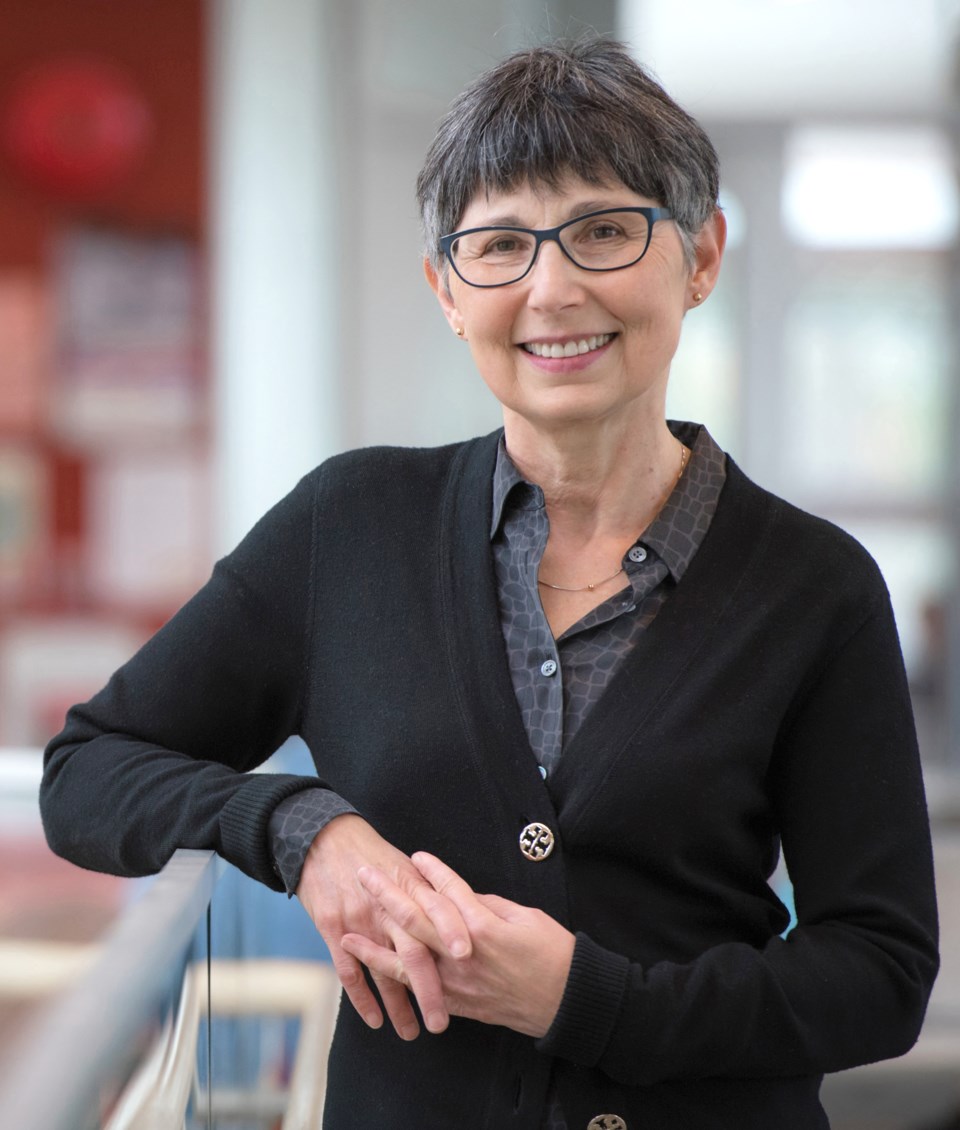A University of B.C. professor and researcher was recently honoured for her work advancing looking at how babies and toddlers come to understand spoken language.
Earlier this month, Janet Werker was awarded the Killam Prize in social sciences for her research examining the foundations of language acquisition in infants growing up in both monolingual and bilingual households. Her research has shown how babies are ready to learn language at birth and how learning language begins through listening.
The Killam Prizes, which include a $100,000 prize for each recipient, are handed out annually by the Canada Council for the Arts. This year the council handed out five prizes and six fellowships.
“This year’s exceptional Killam Prize and Research Fellowship recipients have demonstrated that persistent hard work leads to ground-breaking discoveries that improve not only our depth of knowledge as a collective, but the quality of life of humanity,” Simon Brault, director and CEO at Canada Council for the Arts. “These remarkable scholars whose sustained leadership, commitment to curiosity, and originality of thought will continue to inspire students and colleagues alike, undoubtedly furthering even more advancements in their fields and strengthening the generations to come.”
“It’s an enormous honour,” Werker told the Courier. “It indicates that I’m recognized by my peers and by the Canadian government and granting agencies as someone who’s made important contributions and that feels really good.”
Originally from a small town in Kansas, Werker completed her PhD at UBC in 1982.
“We moved to Vancouver because we saw it and fell in love with it, my husband and I, when we were very young,” she said.
Her first job after completing her degree was at Dalhousie University in Halifax but she returned to the West Coast and her alma mater in 1986. Werker said as a teen she had a keen interest in animals and initially thought she’d go into biology, but became fascinated with human development after taking psychology classes in university.
“If you look at humans, our quintessential capability that distinguishes us from all other animals is language. And it’s language that’s allowed us to achieve the remarkable achievements that we have — civilizations, writing systems, all these kinds of things that allow us to be who we are,” she said. “So it seemed that to understand how we as a species optimally evolved and developed that what I really wanted to study was language.”
Werker started her research while still in graduate school and has continued her work over the last 40 years. And four decades of research on how infants and toddlers learn language means she has seen a lot of babies over the years.
“I have no idea how many, probably 1,500 babies or so come through the lab every year,” she said. “We see a lot of families and a lot of babies.”
So what has she learned from all those babies?
“Babies are remarkable and they’re ready to learn language at birth,” she said. “When you talk to them they love it and they are listening.”
Werker’s research has found that the foundation of learning language actually begins before birth.
“Even before they’re born the baby’s brain, the fetus’ brain, is developing in a way that supports language acquisition… by about 26 weeks of gestation the baby’s auditory system has developed enough for them to begin to respond to the rhythms and ultimately some of the sounds that can be transmitted and heard in utero,” she said.
Werker said that babies become attuned to their mother’s voice and native language while still in the womb and that by the time they’re born infants they will listen to speech over other sounds.
She said, among other things, her research shows how important it is for parents to talk to their babies even before they start to talk.
“In those interactions babies are picking up the melody and rhythm of the native language, as well as the individual sounds, plus they’re getting information from your face, your mouth movements and the rhythm of your nodding head, and that all that information works together to allow babies to figure out the words of their native language.”
Werker said she has also found that babies are able to distinguish between two different languages.
“What we’ve found is that babies don’t get confused. We’ve found that even at birth a baby who’s been hearing two languages in utero will prefer both of those languages over an unfamiliar language but will still be able to perceptually keep the two familiar languages they’ve been hearing apart,” she said, and babies are able to learn more than one language at the same time.
Even with four decades of research behind her, Werker is still looking to advance her work.
“We started a language sciences initiative at UBC to bring people together — faculty, grad students — from across the university and beyond to work on interdisciplinary teams to try to understand more broadly, not just what I do but in general how important it is in all aspects of our lives,” she said, as well as a new university-wide undergraduate course.
“Getting the recognition that comes with a prize like this gives me the ability to more easily get others excited about these kinds of initiatives, to get more people learning about the importance of language,” she said.



